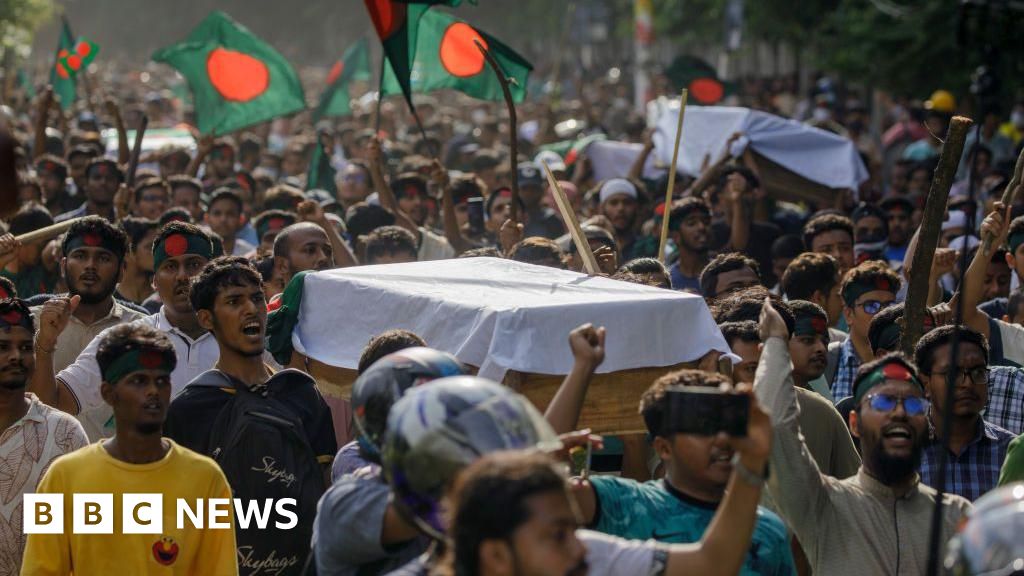Bangladesh Prime Minister Sheikh Hasina blamed her political opponents for deadly unrest in the country, adding that she was “forced” to impose a curfew in the interest of public safety.
“I never wanted it,” she said during a meeting with business leaders in the capital Dhaka on Monday. “As soon as the situation improves, we will lift the curfew.”
Her comments came a day after Bangladesh’s Supreme Court Eliminated most government job quotaswhich sparked weeks of violence across the country.
Clashes between protesters and police have left more than 150 people dead, and rallies have escalated into calls for Ms Hasina to step down.
Ms Hasina blamed the main opposition Bangladesh Nationalist Party and Jamaat-e-Islami and its student wing for the violence and said her government would work to “crush these militants and create a better environment”.
Political analysts believe the unrest is an unprecedented test for one of Asia’s most powerful women.
Ms. Hasina, 76, fourth consecutive term He became prime minister in January in a disputed election boycotted by the country’s main opposition party.
Mubashar Hassan said: “The excessive politicization of the spirit of the liberation war by Sheikh Hasina and her party, the deprivation of citizens’ basic voting rights year after year, and the authoritarian nature of her regime have outraged much of society. Most people.
“Unfortunately, she never became prime minister for everyone in the country. Instead, she remained just the leader of a group,” he told BBC Bangla.
Before the court’s ruling on Sunday, Bangladesh reserved about 30% of its high-paying government jobs for the children of those who fought in Bangladesh’s 1971 war of independence from Pakistan.
The court ruled that only 5% of roles can be reserved for relatives of veterans.
Ms Hasina is the daughter of Bangladesh’s founding leader Sheikh Mujibur Rahman.
After protests, her government abolished the reservation in 2018. But a court in June ordered authorities to reinstate the quotas, sparking new unrest.
The protests, led mainly by university students, began about two weeks ago. They say the system unfairly benefits the children of pro-government groups and call for it to be replaced with merit-based recruitment.
Ms Hasina initially dismissed the protesters’ concerns, which analysts said fueled the unrest.
On July 14, she continued to defend the quota system by reinforcing the division between pro-liberation and anti-liberation descendants.
“Why [the protesters] Is there so much resentment against the freedom fighters? If the grandchildren of freedom fighters do not get quota benefits, should the grandchildren of Lazhakars get the benefits? she told a news conference.
The Razakars – a derogatory label in Bangladesh – refer to a paramilitary force of Bangladeshis who fought for Pakistan during the 1971 war. The group has also been accused of heinous crimes.
Ms Hasina’s comments inspired more protesters within hours. That night, thousands of students took to the streets of Dhaka to protest against the prime minister’s remarks.
In the following days, more rallies were held across the country. Several fires broke out across the country, including at state broadcaster BTV.
About 500 people have been arrested in the past two weeks, and authorities have deployed the military and imposed a nationwide curfew.
The country’s mobile internet and text messaging services have been suspended for at least five days in an effort to quell the protests.
Some student leaders have vowed to continue the protests, demanding justice for protesters killed and detained in recent days, the resignation of government ministers and an apology from Ms Hasina.

